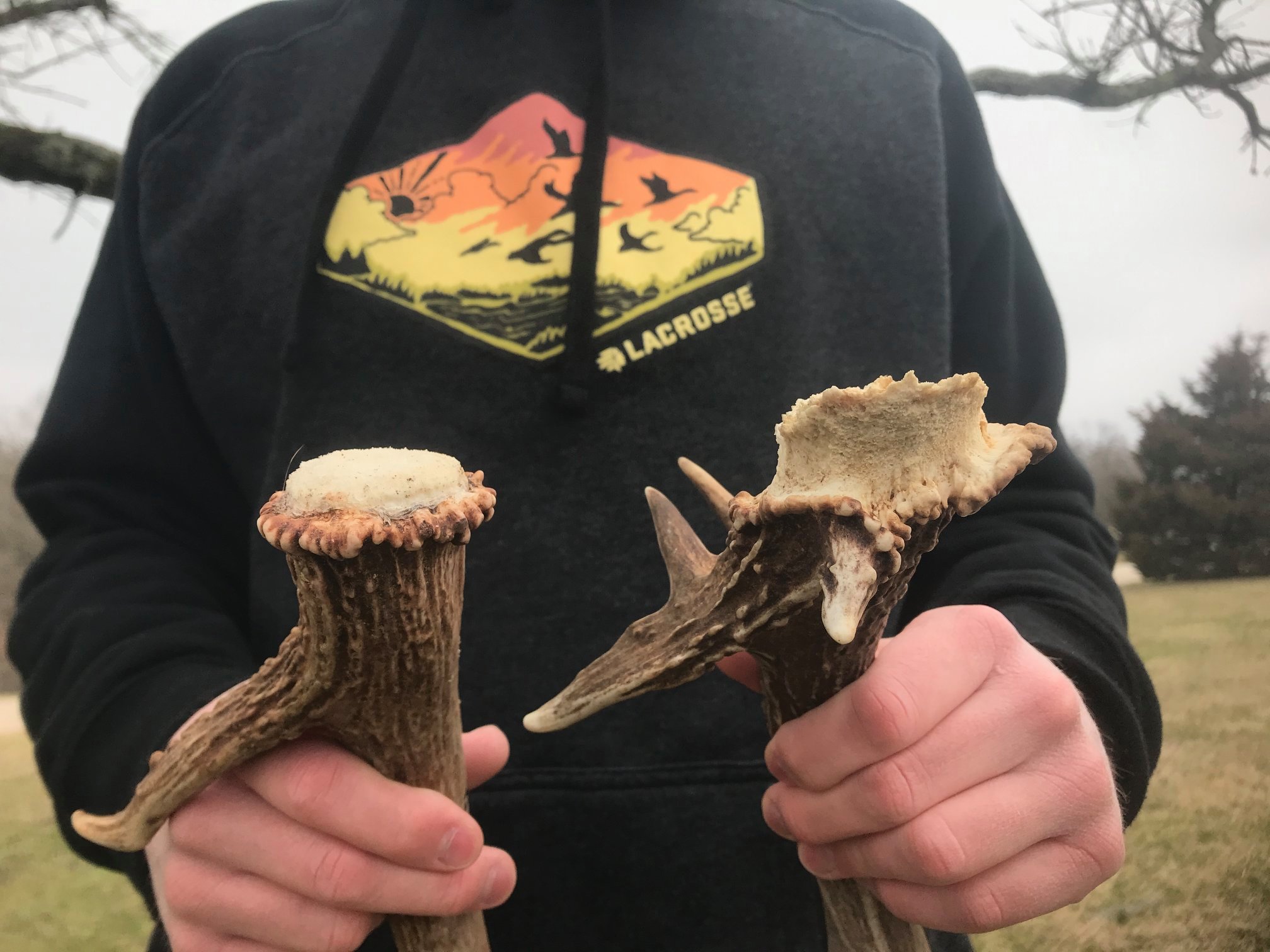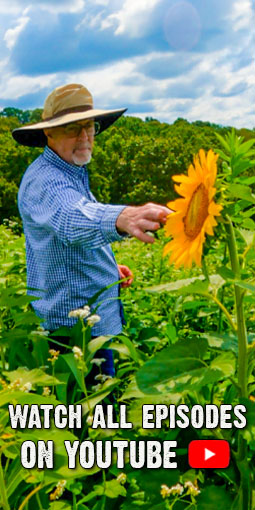When There’s Skull Attached to Shed Antlers
Filed under: Hunting Blog, White-tailed Deer
Below you will see a photo of an antler intern Nigel Waring found while creating a fire break.

Unfortunately, this antler (shown right) has a large portion of the skull attached to the base. The antler was likely not “shed”, but broken off while sparring, rubbing or during another activity recently. This was most likely caused by an infection that eroded the skull and became a brain abscess. We suspect this buck has expired from the brain abscess due to the amount of bone found on the antler.
Antlers are shed as a response to chemical changes within a buck’s body. These changes are generally stimulated by changes in the amount of time the sun shines daily. However, within this window, several factors such as available nutrition, general health, and dominance ranking can determine when an individual buck sheds his antlers. For example, deer researchers often mention observing two dominate bucks in captivity fighting during this time of year. The loser will shed his antlers soon (sometimes the next day). It seems hard to imagine that antlers will simply fall off one day due to a change in dominance status (along with hormone levels) but these examples seem to indicate that’s the case. Never underestimate the effects of hormones on all critters!
Antlers for most bucks tend to be shed during the late winter months. However, some bucks will shed earlier due to other factors. Generally speaking, the healthier the herd, the longer bucks will hold their antlers! I like seeing some bucks with antler during Missouri’s turkey season! Bucks healthy enough to hold antlers that late into the winter are an excellent indicator of a healthy deer herd. It also indicates that the habitat is likely good for turkeys also!
The antler shown on the left is one that shed clean and is rounded at the base. Based on these characteristics, this buck (left shed) was likely very healthy when he shed the antler. You can learn a lot by studying antlers/sheds!
To learn more about brain abscesses, watch the next episode coming up Monday on GrowingDeer!



